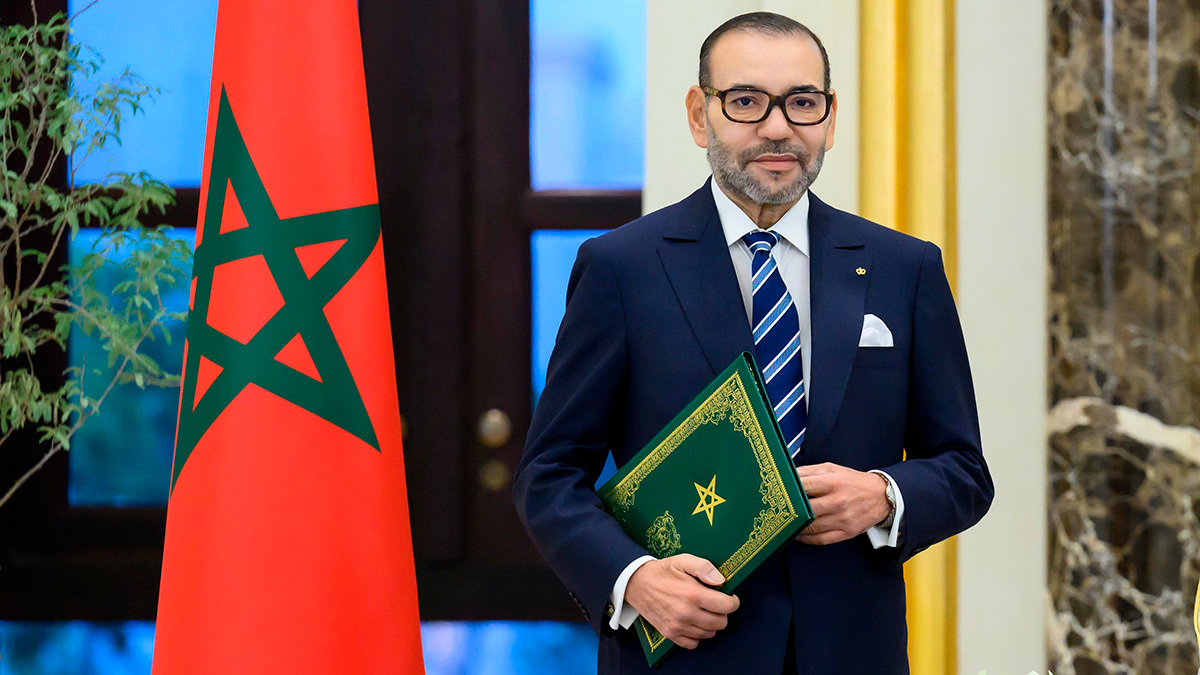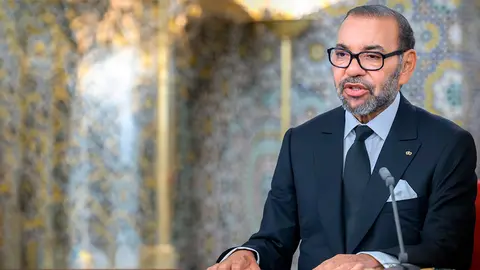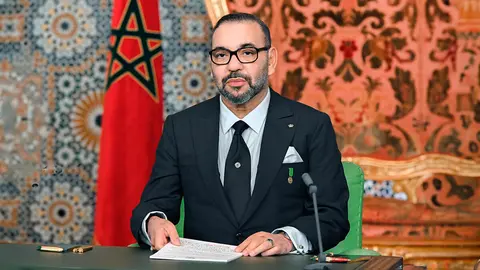France recognises that Western Sahara falls under Moroccan sovereignty

The President of France, Emmanuel Macron, has officially communicated to the King of Morocco, Mohammed VI, that "he considers that the present and the future of Western Sahara fall within the framework of Moroccan sovereignty", according to the official Moroccan news agency MAP, citing an official communiqué from the Moroccan Royal Cabinet.
The message coincides with the celebration of the 25th anniversary of the accession to the throne of Mohammed VI, who recently delivered his traditional speech on the Feast of the Throne. In the official communication, the President of the Republic of France has indicated to the Alaouite monarch "the intangibility of the French position on this matter of national security for the Kingdom" and that his country "intends to act in accordance with this position both nationally and internationally".

Emmanuel Macron affirmed that, "for France, autonomy under Moroccan sovereignty is the framework within which this question must be resolved". "Our support for the autonomy plan proposed by Morocco in 2007 is clear and constant", said Macron, adding that this plan "is now the only basis for a just, lasting and negotiated political solution, in accordance with the resolutions of the United Nations Security Council".
"Today, an increasingly broad international consensus is emerging", the French head of state indicated, in relation to the autonomy plan under Moroccan sovereignty, specifying that "France is playing its full role, in this respect, in all the forums concerned", in particular through his country's support for the efforts of the Secretary-General of the United Nations (UN) and his personal envoy for Western Sahara, Staffan de Mistura, who is developing major negotiating efforts between the parties involved.
In this line of support for the negotiating process, the French President pointed out that "the time has come to move forward". "I therefore encourage all the parties to meet with a view to a political settlement, which is within reach," the French President said.

Remarkable political initiative
This French political move is very significant considering that it was the former colonial power in Moroccan territory, along with Spain, which specifically controlled the territory of Western Sahara and which recently also gave its support to the North African country's initiative for the autonomy of Western Sahara under Moroccan sovereignty, considering it the "most serious, credible and realistic" option for settling the Sahrawi dispute, which has lasted for more than four decades since Spain's departure from the territory as a colonial power.
France thus joins more than 100 countries that have already shown their support for Morocco in this dispute, including major powers such as the United States, Israel, the United Arab Emirates, Germany and Spain itself.
The great impetus came from the recognition of the Moroccan status of the Sahara declared by the last US administration of Donald Trump in December 2020. This recognition came in exchange for Morocco's establishment of political ties with Israel, following in the wake of the Abraham Accords in September of that year, whereby several Arab countries such as the Emirates and Bahrain established diplomatic relations with the Israeli state with the aim of pacifying the Middle East and developing the region in all aspects, confronting destabilising actors such as the Islamic Republic of Iran.

This position contrasts with that of the opposition Polisario Front, a pro-independence organisation that advocates holding a referendum on independence for the Sahrawi people, which is difficult to achieve due to problems such as those related to the census, as various analysts have pointed out, and which enjoys less international support, including that of Algeria, Morocco's great political rival in the Maghreb, especially after the Algerian decision to break off relations with the Moroccan state in August 2021 after accusing the Alawi kingdom of "hostile acts". This is despite the fact that the Moroccan king has on several occasions reached out to his Algerian neighbour to restore bilateral relations.
In this regard, the French position is also noteworthy because France also has clear historical ties with Algeria, having been present in Algerian territory also as a colonial power. Despite Algerian opposition, France has also ended up agreeing to Morocco's proposal for Western Sahara.










